Biology Lesson Plans and Activities
Gobble, Gobble Tryptophan Zzzzz. TPT
BBC Bitesize Science video
Turkey External Anatomy
My Life as A Turkey "NOVA"
Acorns
How Cranberries Grow
AP Biology Activities
Cell Signaling the Taste Lab with Gymnema Tea. BIF1 Ch. 5 and POGIL Signal Transduction
Introduction to Respiration: How food turns into "body currency" ATP. BIF Ch 7
Animal Behavior
Birds and Dinosaurs phylogeny: From scales to feathers sciencedaily
Acorn to Oak Tree reflection on your life
How a recipe is a like a science experiment.
Wildlife Biology
wolf Unit. Grey Wolves Gray Matters Curriculum from U of Minnesota. with Wolves
Time Passes drawing sketch activity from GWGM3 new activity of the year for me, so good.
Getting Acquainted/Hand Turkey: Five things you are proud of about you, one per turkey feather.
Turkey Calls and communication
BookClub
Pride and Prejudice AtoZ Jane Austen
Growth Mindset
The Food Cooking with Alan
Brining the Turkey
Turkey Bags
Gramma's Giblet Gravy
The tante $11 Boneless Ham Story
The retelling of year of the broken fridge.
coming events
Mitosis
AtoZ Jane Eyre Bronte
-
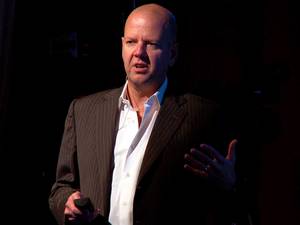 16:34
16:34
John Gerzema says there's an upside to the recent financial crisis — the opportunity for positive change. In this talk, he identifies four major cultural shifts driving new consumer behavior and shows how businesses are evolving to connect with thoughtful spending.
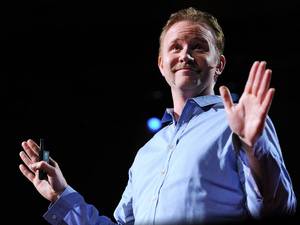 19:28
19:28
With humor and persistence, filmmaker Morgan Spurlock dives into the hidden but influential world of brand marketing, on his quest to make a completely sponsored film about sponsorship. (And yes, onstage naming rights for this talk were sponsored too. By whom and for how much? He'll tell you.)
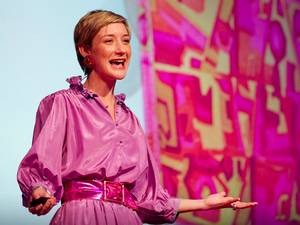 5:24
5:24
Designer Jessi Arrington packed nothing for TEDActive but 7 pairs of undies, buying the rest of her clothes in thrift stores around LA. It's a meditation on conscious consumption — wrapped in a rainbow of color and creativity.
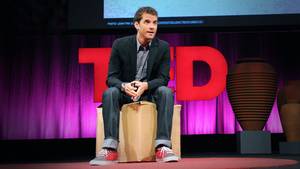 5:49
5:49
Writer and designer Graham Hill asks: Can having less stuff, in less room, lead to more happiness? He makes the case for taking up less space, and lays out three rules for editing your life.
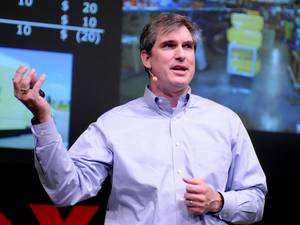 12:06
12:06
We make millions of online purchases daily, but who (or what) actually puts our items into packages? In this talk, Mick Mountz weaves a fascinating, surprisingly robot-filled tale of what happens inside a warehouse.
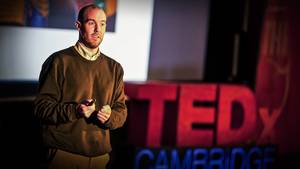 10:58
10:58
At TEDxCambridge, Michael Norton shares fascinating research on how money can indeed buy happiness — when you don't spend it on yourself. Listen for surprising data on the many ways pro-social spending can benefit you, your work, and (of course) other people.
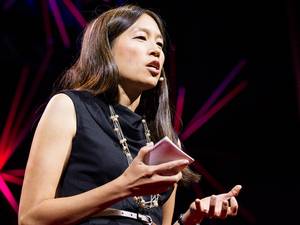 14:25
14:25
In the ongoing debate about globalization, what's been missing is the voices of workers — the millions of people who migrate to factories in China and other emerging countries to make goods sold all over the world. Reporter Leslie T. Chang sought out women who work in one of China's booming megacities, and tells their stories.
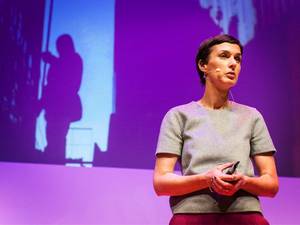 11:23
11:23
Almost everything we own and use, at some point, travels to us by container ship, through a vast network of ocean routes and ports that most of us know almost nothing about. Journalist Rose George tours us through the world of shipping, the underpinning of consumer civilization.
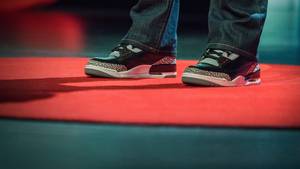 11:51
11:51
Josh Luber is a "sneakerhead," a collector of rare or limited sneakers. With their insatiable appetite for exclusive sneakers, these tastemakers drive marketing and create hype for the brands they love, specifically Nike, which absolutely dominates the multi-billion dollar secondary market for sneakers. Luber's company, Campless, collects data about this market and analyzes it for collectors and investors. In this talk, he takes us on a journey into this complicated, unregulated market and imagines how it could be a model for a stock market for commerce.
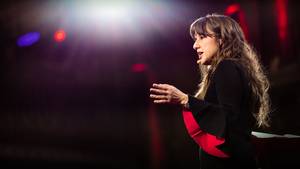 22:55
22:55
We're building an artificial intelligence-powered dystopia, one click at a time, says techno-sociologist Zeynep Tufekci. In an eye-opening talk, she details how the same algorithms companies like Facebook, Google and Amazon use to get you to click on ads are also used to organize your access to political and social information. And the machines aren't even the real threat. What we need to understand is how the powerful might use AI to control us — and what we can do in response.
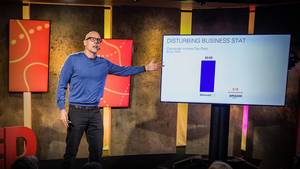 19:05
19:05
The combined market capitalization of Amazon, Apple, Facebook and Google is now equivalent to the GDP of India. How did these four companies come to infiltrate our lives so completely? In a spectacular rant, Scott Galloway shares insights and eye-opening stats about their dominance and motivation — and what happens when a society prizes shareholder value over everything else. Followed by a Q&A with TED Curator Chris Anderson. (Note: This talk contains graphic language.)











No comments:
Post a Comment